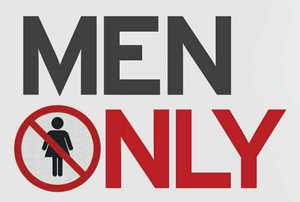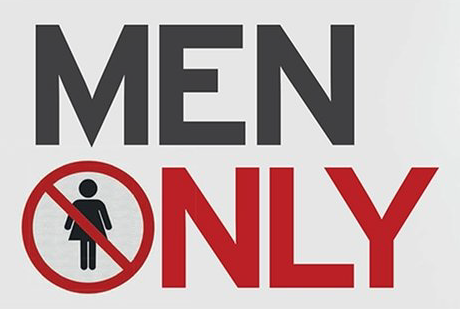An Important Message For Men
An Important Message For Men

 In January of this year, I celebrated the 35th anniversary of opening my law practice. I started my law practice in 1983, when I was 25 years old. I was able to find an office and generate business by following the advice that was given in the book, How To Open Up Your Own Law Practice Without Missing A Meal.
In January of this year, I celebrated the 35th anniversary of opening my law practice. I started my law practice in 1983, when I was 25 years old. I was able to find an office and generate business by following the advice that was given in the book, How To Open Up Your Own Law Practice Without Missing A Meal.
The book recommended that I walk into other lawyers’ offices (without an appointment) and ask the lawyers if they had an extra office that was available for rent. If there was an office available, the book instructed that I then ask if I could trade my research and writing skills for rent. The book further advised that for those lawyers who did not have an office to rent, I was to ask them: (1) if they had any research and writing work for me to do for an agreed-upon hourly rate, and (2) if they would be willing to refer clients to me that they didn’t want.
I did exactly as the book instructed. One of the first lawyers I met was Raymond (Ray) Rose, a well-known Peoria injury and malpractice trial attorney. When I met Ray, he told me that he had recently fired an attorney who had been working for him. He didn’t want to rent an office to me, but he liked the idea of paying me to work on his files. In addition to giving me files to work on, Ray taught me the fundamentals of how to handle clients, question witnesses, conduct depositions, and prepare cases for trial.
Among insurance defense attorneys, Ray was known as the “gentle interrogator.” He was never aggressive or belligerent when he questioned a witness. He always behaved like a gentleman and used his friendly, laid-back style of questioning to catch a witness off guard, which allowed him to later maneuver himself into a position where he could discredit the witness.
I haven’t seen or talked to Ray for more than 10 years. The last I heard, he had retired and moved to Florida. I still think of him every once in a while, because most of what I do involves the same types of cases he gave to me to work on.
Today, my typical client is someone who was in a vehicle minding their own business when someone else crashed into them. The cause of the crash is usually because of the carelessness of the other driver.
Over the years, I’ve learned to size up my clients and predict with a certain degree of accuracy whether they are going to listen to my advice and follow through on my recommendations. I discovered a long time ago that my best clients are people who have been or were previously in the military for several years.
It doesn’t matter whether the person is a male or a female. That person has been trained to listen to, respect, and follow the advice that is given to them by someone who is in a position of authority. Clients who have come from a military background do exactly what I tell them to do. They usually say “yes sir” to everything I tell them to do. Every time I give them direction as to what they need to do, they follow through on what I tell them to do.
Some of my worst injury clients are men and women who are in their early 20s. Most of them don’t really have much respect for authority. It doesn’t seem to matter to them that I have 35 years of experience in an area of law that they need help with. Although they may behave as though they’re listening, they tend to ignore my advice, which harms them because they fail to get the care and treatment that they need.
Most of my injury clients are female. My theory as to why that’s the case is that women generally reach out for assistance more frequently than men do. They’re willing to admit that they need help. Men are reluctant to admit that they need help. Most of the men who come into my office for an injury-related appointment do so because they have a mother or a wife who has been harassing them to contact a lawyer. Men are generally more difficult to manage because they tend to “tough it out” and cut their treatment short because they think they can handle whatever comes their way.
Of course, there are exceptions to the behaviors that I’ve described.
Last week I wrote about three mothers who because of their prayers and devotion to the Mother of God, were able to save their children from suicide. I have more examples that I could give you and most of those examples have to do with women whose prayers have benefited their spouses or children.
It has been my observation that just as women are more likely to reach out to lawyers for legal assistance when they need it, they are also more likely to reach out to God for help when they need it. None of this is new. If we go back to the time of Jesus, more often than not, it was women who reached out to Him for help.
His mother made sure that she was in the path that He had to travel on His way to Calvary. When He stopped to acknowledge her, she offered Him her love, support, and prayers. He was later approached by Veronica, who courageously defied the orders of the soldiers, so she could wipe His bloody face with her veil. He then came upon the women who were weeping at the pain and torture that were being inflicted on Him.
The only man who assisted Jesus on the way of the cross was Simon of Cyrene, and he didn’t help out until he was forced to do so by the soldiers who were concerned that Jesus was not going to be able to finish carrying His cross to the predetermined destination.
At the time of our Lord’s death, three women and one man were standing at the foot of the cross — His mother, the apostle John, Mary of Cleophas, and Mary Magdalene.
The first person who discovered that our Lord had risen from the dead was a woman — Mary Magdalene. She courageously risked her life by going to his tomb on Easter Sunday morning. When she got there, “she saw two angels in white, sitting where the body of Jesus had been lying, one at the head and the other at the feet. They said to her, ‘Woman, why are you weeping?’ She said to them, ‘They have taken away my Lord, and I do not know where they have laid him.’ When she said this, she turned around and saw Jesus standing there….” John 20:12-14
What kept the men from coming to check on our Lord? Where were they when He needed them the most?
If you’re a man, I have a challenge for you. Sit down and write on a sheet of paper: (1) the books you’ve read over the past 12 months to learn more about God and His Church, (2) the prayers you’ve added to your daily routine over the past year that are offered up for your family members, (3) the works of mercy you’ve intentionally incorporated into your weekly schedule over the past year, and (4) the people you’ve helped over the past year in developing a greater understanding of the Catholic faith.
Unfortunately, your list may not be very long. What if you died today and Almighty God asked you to prepare the same list? Let’s face it. Most of us men avoid thinking about and making any new commitments concerning our daily prayer life and assisting others in their spiritual journey, unless we’re hit with a significant loss or crisis. We do everything in our power to avoid making commitments to regularly pray more and to help others through the corporal and spiritual works of mercy.
Stop leaving it up to the women in your life to take on the full responsibility of praying and sacrificing for you and your family. It’s time for you to step up to the plate and make the commitments that are necessary for you to do what needs to be done so you can complete the above-mentioned list to the satisfaction of your Creator.




2 Comments
Harry, I love the way you lead from a topic that is “material” to one that is “spiritual”! Thank you for writing such good examples to be followed!
Blessings and love to you and the entire Williams Family! Sister Roberta
[…] have a few more things to say about this topic next week. Print this […]